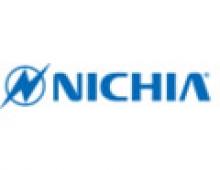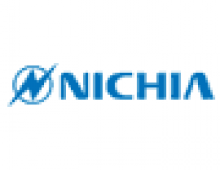
"No regrets" says disappointed Nakamura
Despite losing his high court battle with Nichia, Shuji Nakamura says that the lawsuit against his former employer will result in better deals for researchers at Japanese companies.
Shuji Nakamura, the pioneering GaN researcher recently awarded $8 million compensation from his former employer Nichia, says that his action will ultimately benefit Japanese researchers.
Despite the large sum, the settlement is widely regarded as a victory for Nichia, which had appealed against last years district court award of $189 million to Nakamura. I was so disappointed [with the settlement], the despondent researcher told Compoundsemiconductor.net from his University of California, Santa Barbara office.
"It has become small money," added Nakamura, who also works as a scientific advisor to Nichias US rival Cree. I had to pay a lot of money to lawyers.
Nakamura confirmed that he would not be appealing against the Tokyo high court ruling, as the countrys supreme court does not deal with the detail of financial compensation.
He said that the high court judge had placed an apparently arbitrary $6 million cap on the amount of compensation Nichia would have to pay. This is despite a precedent set in similar cases previously that has seen 5% of a companys so-called "extra" profit awarded to the key inventors of the technology.
Nakamura believes that Nichia has profited by around $2 billion on the blue LEDs that he was instrumental in developing, meaning that his compensation would be rated at less than 1% of the resulting company earnings.
Despite his obvious disappointment, however, Nakamura said that he did not regret starting the legal action back in 2001.
He believes that following the widespread coverage of his case, inventors are now likely to receive much greater financial compensation for important patents that they file while working for Japanese companies.
Nakamura himself received just $200 from Nichia for some of the patents that he filed.
Bemoaning what he sees as the way that Japanese businesses exploit their workers notorious loyalty to their employers, Nakamura said that researchers will now receive more recognition for good inventions.
Despite the large sum, the settlement is widely regarded as a victory for Nichia, which had appealed against last years district court award of $189 million to Nakamura. I was so disappointed [with the settlement], the despondent researcher told Compoundsemiconductor.net from his University of California, Santa Barbara office.
"It has become small money," added Nakamura, who also works as a scientific advisor to Nichias US rival Cree. I had to pay a lot of money to lawyers.
Nakamura confirmed that he would not be appealing against the Tokyo high court ruling, as the countrys supreme court does not deal with the detail of financial compensation.
He said that the high court judge had placed an apparently arbitrary $6 million cap on the amount of compensation Nichia would have to pay. This is despite a precedent set in similar cases previously that has seen 5% of a companys so-called "extra" profit awarded to the key inventors of the technology.
Nakamura believes that Nichia has profited by around $2 billion on the blue LEDs that he was instrumental in developing, meaning that his compensation would be rated at less than 1% of the resulting company earnings.
Despite his obvious disappointment, however, Nakamura said that he did not regret starting the legal action back in 2001.
He believes that following the widespread coverage of his case, inventors are now likely to receive much greater financial compensation for important patents that they file while working for Japanese companies.
Nakamura himself received just $200 from Nichia for some of the patents that he filed.
Bemoaning what he sees as the way that Japanese businesses exploit their workers notorious loyalty to their employers, Nakamura said that researchers will now receive more recognition for good inventions.


















